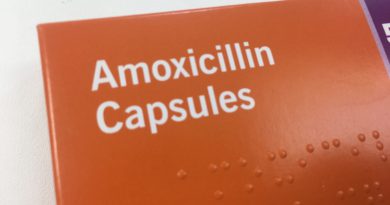What is the future of the UK’s National Health Service (NHS)?
The NHS is huge with almost 150,000 doctors and 370,000 nurses employed: each year it costs about a sixth of government spending being about £100 billion and opinion polls show that it is very highly valued by the public. So much so that politically it has become something of a “third rail” as the Americans say, being like a live electric rail that all politicians are frightened of touching. Pictures of politicians in hospitals are 1,000 times as common as anything resembling a serious comment about how the NHS has got to change.
Keeping services as they are is simply not a viable option, as the raw numbers demonstrate. In comparison to 2010 the demands on the NHS by 2030 will have become unsupportable – by then there will have been a 100% increase in the number of over 85 year olds and a 50% increase in those over 65. Their associated health needs will have exploded too with an 80% increase in those with dementia, and an increase of around 50% in the numbers with diabetes, arthritis or coronary heart disease. This is looking at 2030, but even within 7 years (2021) the Nuffield Trust estimates that NHS spending will need to increase by £50 billion in real terms (about 50%).
It seems extraordinarily unlikely that this level of increase in spending will be politically acceptable and yet the public seem to love “their” NHS. Increasingly they recognise that in terms of resources the health service is principally for the older generation, but younger people often take comfort in the idea that “their turn will come”, that in due course when they need it the current NHS services will be there for them. But increasingly this looks like the NHS promise of supplying virtually all needs without cost will not be deliverable in the future – in other words for young people “their time will not come” and this is undermining the social contract on which health spending depends a contract where young people agree to pay heavily now so that they will receive in future.
Attitude surveys show that the NHS is most popular amongst the over 50s (who are also the age group most likely to vote) – perhaps this is because as they experience the NHS at first hand more regularly they realise what a good service it really is, or perhaps it’s because they are more likely to have experienced or considered alternatives such as British medicine before 1948 or the health service in the US – health care only available to those who can afford it.
Media stories about localised failings in the NHS are common because (a) in a huge organisation there is bound to be some inefficiency and some poor practice so the stories will keep emerging and (b) people love to hear about scandals because they can relate to the NHS and because these stories play on that most basic of human instincts, fear. Recent examples are stories about A&E staff shortages, a doctor who allegedly put graffiti on a patient’s liver, hospital closures and individual health trusts becoming insolvent. The politicians’ failure to discuss the future of the NHS is like a patient worrying unduly about his ingrowing toenails when the doctor knows that he is likely to suffer a heart attack any day: the whole Health Service model of being free at the point of use is now in jeopardy and needs more than PR spin and a sticking plaster. Those on the left will say “hands off our NHS” and the Conservatives will argue that the NHS is “safe in their hands” but the truth is it’s rapidly becoming unaffordable as a result of increasing life expectancies, rising costs and the surge in numbers with chronic illness.
So what does 2014 hold for the NHS? Presumably Jeremy Hunt will continue as Health Secretary with an eye to the next election and preferment within the government, other politicians will speak of the NHS in reverential terms and meanwhile the system will start to break down and elements of it will crack. The fact that the media are so alert to NHS stories means that at some point the journalists and public will force a debate about affordability and sustainability – ultimately the NHS is not just about people: its lifeblood is money.




